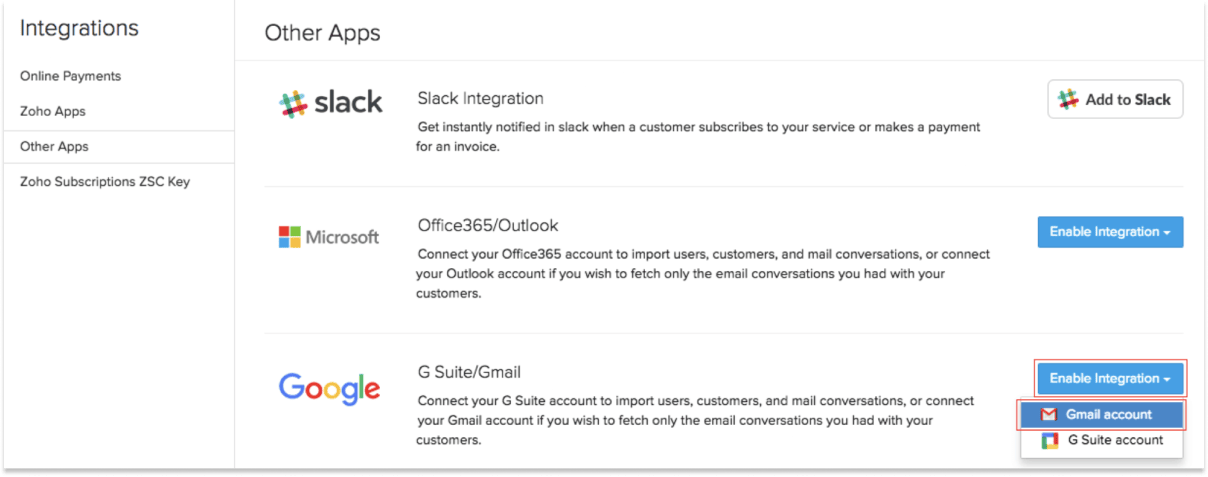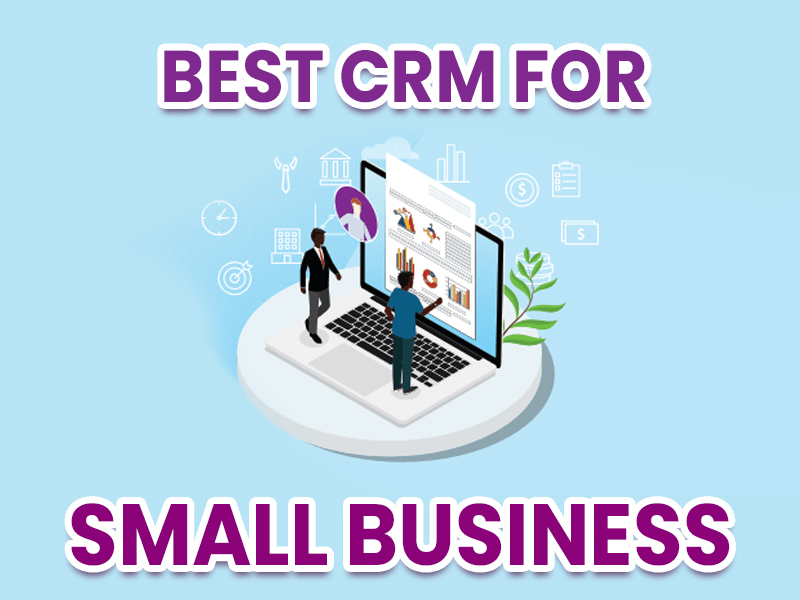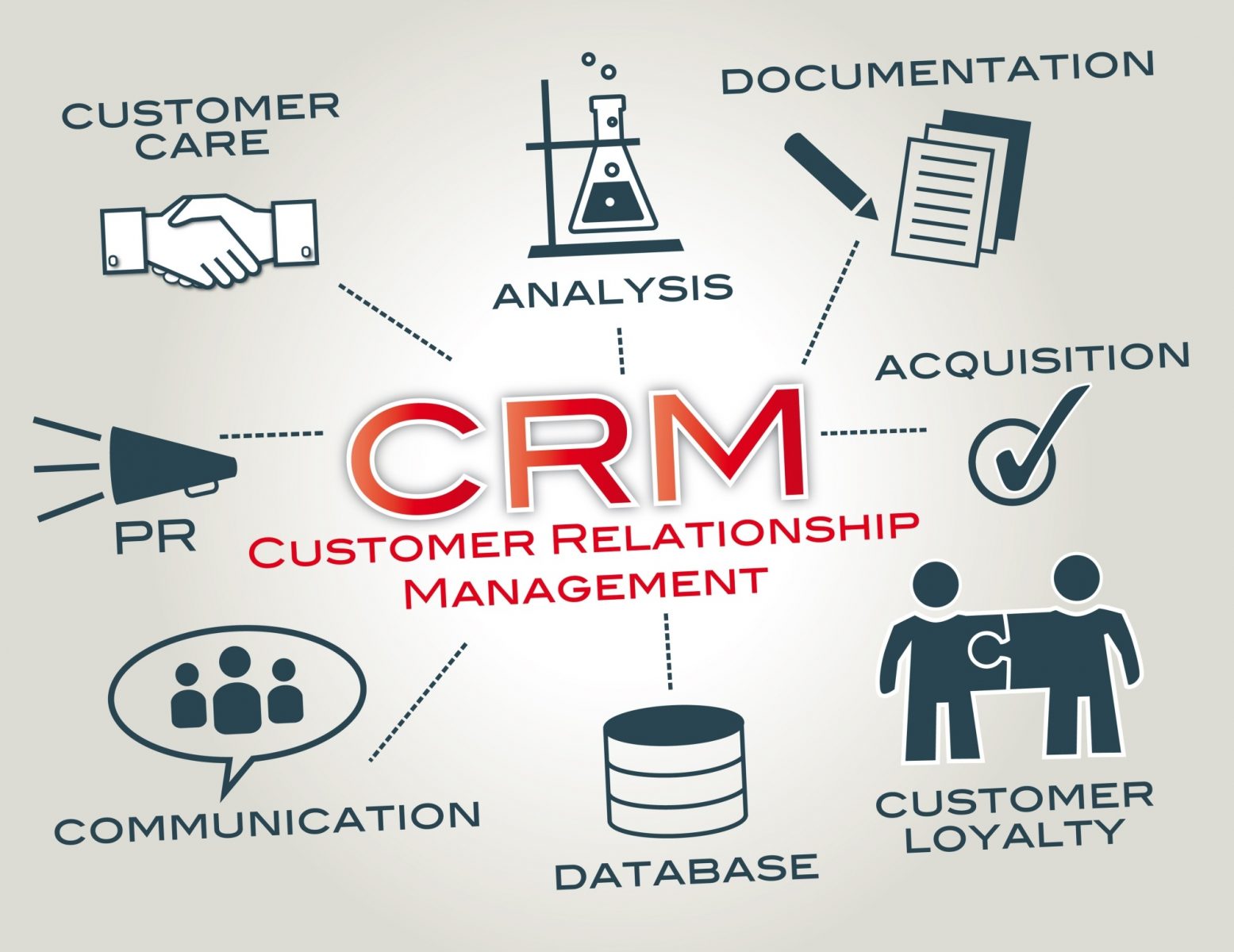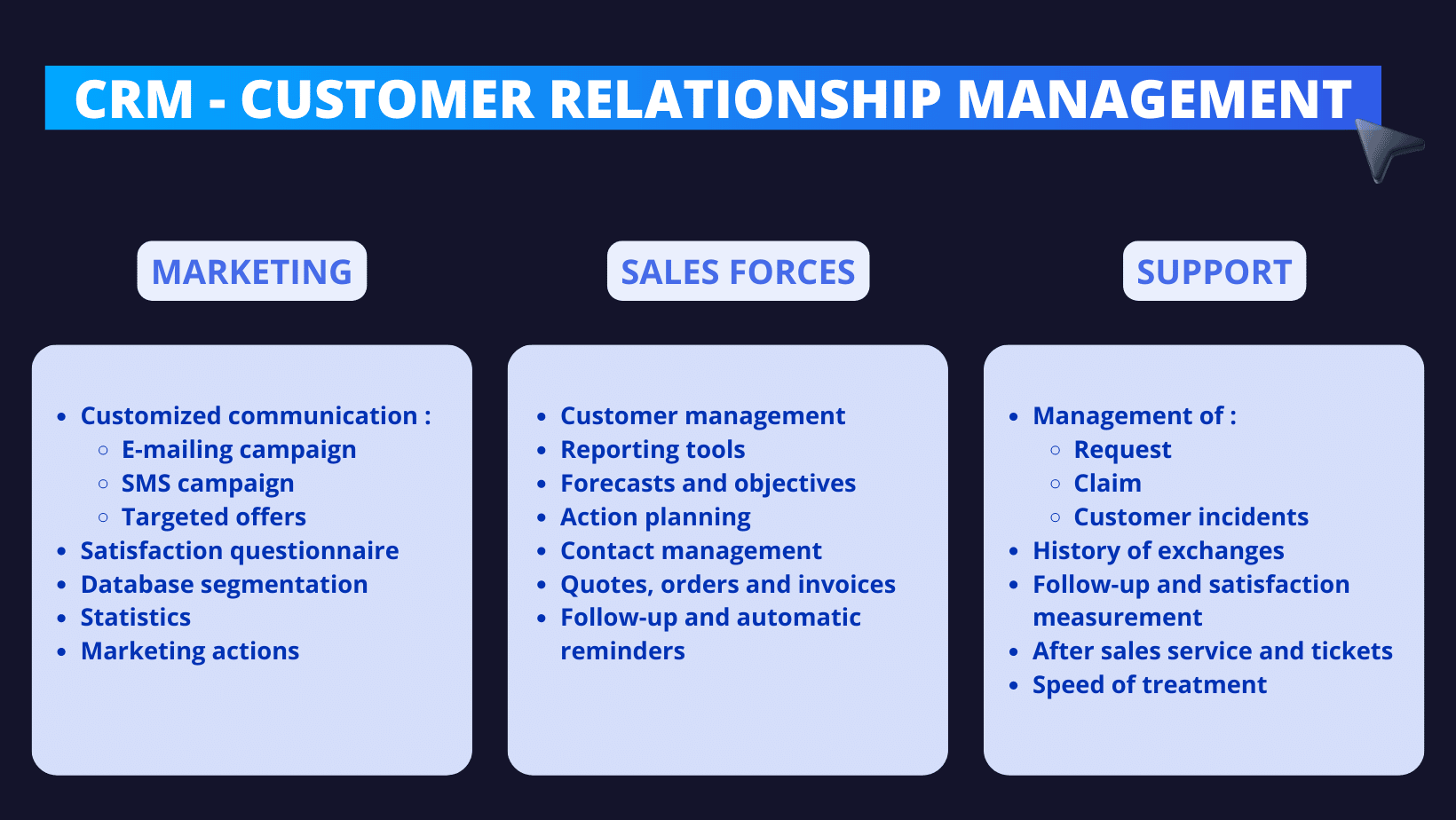Small Business CRM: Your Beginner’s Guide to Customer Relationship Management
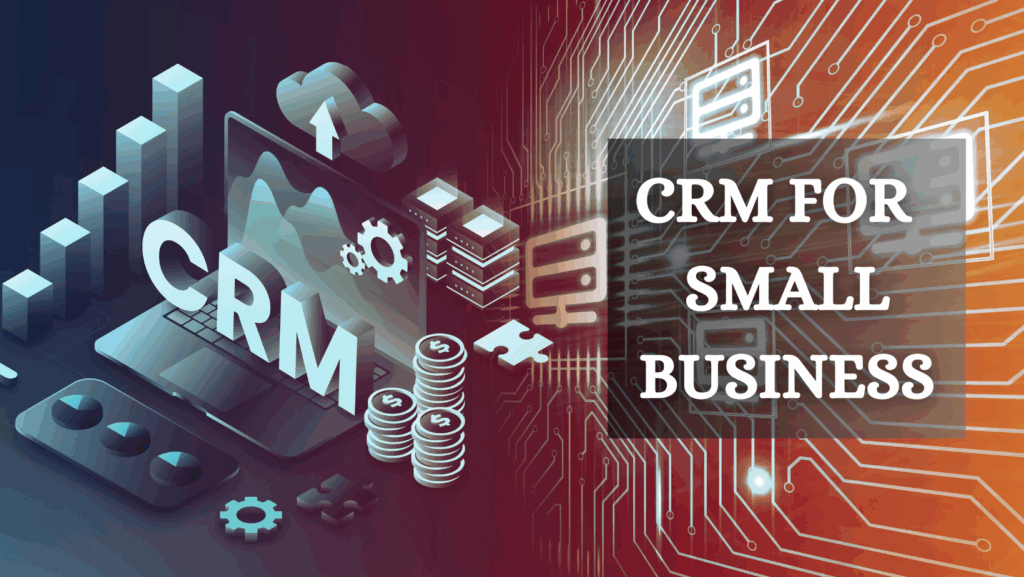
Small Business CRM: Your Beginner’s Guide to Customer Relationship Management
Starting a small business is like embarking on an exciting adventure. You’re the captain, the navigator, and the entire crew rolled into one. You’re juggling a million things: product development, marketing, sales, and of course, managing your customers. That’s where a Customer Relationship Management (CRM) system comes in. Think of it as your trusty sidekick, helping you navigate the often-turbulent waters of customer interactions. This guide is designed specifically for beginners – those who are new to the CRM world and looking to understand its benefits and how to implement one effectively. We’ll break down everything you need to know, from the basics to choosing the right CRM for your small business.
What is a CRM and Why Does Your Small Business Need One?
At its core, a CRM is a system that helps you manage your interactions with current and potential customers. It’s a centralized hub where you store all the crucial information about your customers: their contact details, purchase history, communication logs, and any other relevant data. But a CRM is much more than just a digital address book. It’s a powerful tool that can transform the way you do business.
Here are some of the key reasons why a CRM is essential for small businesses:
- Improved Customer Relationships: A CRM allows you to personalize your interactions with customers. You can remember their preferences, address them by name, and tailor your communication to their specific needs. This leads to stronger relationships and increased customer loyalty.
- Enhanced Sales Efficiency: CRM systems streamline the sales process by automating tasks, tracking leads, and providing insights into sales performance. This frees up your sales team to focus on what they do best: closing deals.
- Better Marketing Campaigns: CRM data helps you segment your audience and create targeted marketing campaigns. You can send personalized emails, offer relevant promotions, and track the effectiveness of your marketing efforts.
- Increased Productivity: By automating repetitive tasks and providing easy access to customer information, a CRM boosts your team’s overall productivity.
- Data-Driven Decision Making: A CRM provides valuable insights into your customers and your business. You can track key metrics, identify trends, and make data-driven decisions that improve your bottom line.
In essence, a CRM helps you understand your customers better, serve them more effectively, and grow your business sustainably.
Key Features of a CRM System
While CRM systems vary in their specific features, most offer a core set of functionalities that are essential for managing customer relationships effectively. Here are some of the key features you should look for:
- Contact Management: This is the foundation of any CRM. It allows you to store and organize customer contact information, including names, email addresses, phone numbers, and physical addresses.
- Lead Management: CRM systems help you track and manage leads, from initial contact to conversion. This includes capturing lead information, qualifying leads, and assigning them to sales representatives.
- Sales Automation: Automate repetitive sales tasks, such as sending follow-up emails, scheduling appointments, and creating sales reports. This saves time and allows your sales team to focus on selling.
- Workflow Automation: Automate business processes, such as lead routing, task assignment, and email marketing campaigns.
- Email Integration: Integrate your CRM with your email system to track email communication, send mass emails, and personalize your email marketing efforts.
- Reporting and Analytics: Generate reports and analyze data to track key metrics, identify trends, and make data-driven decisions.
- Customer Support: Some CRM systems include customer support features, such as a help desk, ticketing system, and knowledge base.
- Mobile Access: Access your CRM data from anywhere with a mobile app. This allows your team to stay connected and productive on the go.
When choosing a CRM, consider the features that are most important for your business. Don’t get bogged down in features you don’t need. Focus on the core functionalities that will help you achieve your business goals.
Choosing the Right CRM for Your Small Business
Choosing the right CRM is a crucial decision that can significantly impact your business’s success. Here’s a step-by-step guide to help you choose the perfect CRM for your small business:
- Assess Your Needs: Before you start looking at different CRM systems, take the time to assess your business needs. What are your goals? What are your pain points? What features are essential for your business? Consider your sales process, marketing strategies, customer service operations, and overall business objectives.
- Define Your Budget: CRM systems come in a variety of price points, from free to enterprise-level. Determine how much you’re willing to spend on a CRM. Consider both the initial setup costs and the ongoing subscription fees.
- Research Different CRM Systems: Once you know your needs and budget, start researching different CRM systems. Read reviews, compare features, and consider the pros and cons of each system. Some popular CRM options for small businesses include:
- HubSpot CRM: A popular, user-friendly CRM with a generous free plan.
- Zoho CRM: A comprehensive CRM with a wide range of features and affordable pricing.
- Salesforce Essentials: A scaled-down version of Salesforce, ideal for small businesses.
- Pipedrive: A sales-focused CRM with a visual pipeline and intuitive interface.
- Freshsales: A sales CRM with built-in features for phone, email, and chat.
- Consider Scalability: Choose a CRM that can grow with your business. As your business expands, you’ll need a CRM that can handle increased data, users, and features.
- Look for Integrations: Consider how the CRM integrates with other tools you use, such as your email marketing platform, accounting software, and social media channels. Integrations can streamline your workflow and improve efficiency.
- Evaluate User Friendliness: Choose a CRM that is easy to use and navigate. The easier the system is to use, the more likely your team is to adopt it and use it effectively. Look for an intuitive interface, clear instructions, and helpful tutorials.
- Check for Customer Support: Make sure the CRM provider offers adequate customer support. Look for options such as email support, phone support, and online documentation.
- Request Demos and Trials: Before making a final decision, request demos and trials of the CRM systems you’re considering. This will allow you to test the system, explore its features, and see if it’s a good fit for your business.
- Get Feedback from Your Team: Involve your team in the decision-making process. Get their feedback on the different CRM systems you’re considering. They’ll be the ones using the system on a daily basis, so their input is valuable.
- Make a Decision and Implement the CRM: Once you’ve considered all the factors, make a decision and implement the CRM. Plan your implementation carefully, train your team, and be patient. It takes time to fully integrate a CRM into your business processes.
Implementing Your CRM: A Step-by-Step Guide
Once you’ve chosen your CRM, the real work begins: implementation. A successful implementation is crucial for maximizing the benefits of your CRM. Here’s a step-by-step guide to help you get started:
- Plan Your Implementation: Before you start, create a detailed implementation plan. Define your goals, identify your key stakeholders, and set a timeline. Determine which data you’ll be importing, how you’ll customize the CRM, and how you’ll train your team.
- Clean and Import Your Data: Before you import your data into the CRM, clean it up. Remove duplicates, correct errors, and standardize your data format. This will ensure that your data is accurate and reliable.
- Customize Your CRM: Tailor the CRM to your specific business needs. Customize fields, create custom reports, and configure workflows. This will help you get the most out of the CRM.
- Train Your Team: Provide comprehensive training to your team on how to use the CRM. Explain the different features, demonstrate how to use them, and provide hands-on practice. Make sure your team understands the importance of the CRM and how it will help them do their jobs better.
- Set Up Integrations: Integrate your CRM with other tools you use, such as your email marketing platform, accounting software, and social media channels. This will streamline your workflow and improve efficiency.
- Test and Refine: Before you go live, test the CRM thoroughly. Make sure everything works as expected. Refine your workflows, customize your reports, and make any necessary adjustments.
- Go Live: Once you’ve tested the CRM and are confident that it’s ready, go live. Roll out the CRM to your team and provide ongoing support.
- Monitor and Evaluate: Monitor your CRM usage and evaluate its effectiveness. Track key metrics, identify areas for improvement, and make adjustments as needed. Regularly review your CRM configuration and make sure it’s still meeting your business needs.
- Provide Ongoing Training and Support: Provide ongoing training and support to your team. As your business evolves, your team will need to learn new features and functionalities. Provide ongoing support to help them use the CRM effectively.
- Stay Updated: CRM systems are constantly evolving. Stay up-to-date on the latest features, updates, and best practices. This will help you get the most out of your CRM and ensure that it’s meeting your business needs.
Best Practices for Using a CRM
Implementing a CRM is only the first step. To truly reap the benefits, you need to use it effectively. Here are some best practices to follow:
- Enter Data Consistently: Make sure your team enters data consistently and accurately. This will ensure that your data is reliable and useful.
- Update Data Regularly: Keep your data up-to-date. Update contact information, track customer interactions, and update sales opportunities as they progress.
- Use the CRM for All Customer Interactions: Encourage your team to use the CRM for all customer interactions, including phone calls, emails, and meetings. This will ensure that all customer information is centralized and accessible.
- Leverage Automation: Use automation features to streamline your workflows and save time. Automate tasks such as sending follow-up emails, scheduling appointments, and creating sales reports.
- Analyze Your Data: Regularly analyze your CRM data to identify trends, track key metrics, and make data-driven decisions.
- Personalize Your Interactions: Use the CRM to personalize your interactions with customers. Address them by name, tailor your communication to their specific needs, and remember their preferences.
- Collaborate with Your Team: Encourage your team to collaborate on customer interactions. Share customer information, discuss sales opportunities, and work together to achieve your business goals.
- Provide Regular Training: Provide regular training to your team on how to use the CRM effectively. This will help them stay up-to-date on the latest features and best practices.
- Get Feedback from Your Team: Get feedback from your team on the CRM. Ask them what they like, what they don’t like, and what improvements they would like to see.
- Review and Refine Your Processes: Regularly review your CRM processes and make sure they’re still meeting your business needs. Make adjustments as needed to improve efficiency and effectiveness.
Common Challenges and How to Overcome Them
Implementing and using a CRM can come with its challenges. Here are some common obstacles and how to overcome them:
- Lack of User Adoption: One of the biggest challenges is getting your team to adopt the CRM. To overcome this, provide comprehensive training, demonstrate the benefits of the CRM, and make it easy to use.
- Poor Data Quality: Poor data quality can undermine the effectiveness of your CRM. To improve data quality, establish clear data entry guidelines, provide regular data validation, and implement data cleaning procedures.
- Integration Issues: Integrating your CRM with other tools can sometimes be challenging. To overcome this, choose a CRM that integrates seamlessly with the tools you use. Seek help from the CRM provider if you experience any integration issues.
- Customization Overload: Over-customizing your CRM can lead to complexity and confusion. To avoid this, customize your CRM only to the extent necessary. Focus on the core features that will help you achieve your business goals.
- Lack of Training: Insufficient training can hinder your team’s ability to use the CRM effectively. To overcome this, provide comprehensive training, ongoing support, and refresher courses.
- Resistance to Change: Some team members may resist using a new system. To overcome this, communicate the benefits of the CRM, involve them in the decision-making process, and provide ongoing support.
- Data Security Concerns: Protecting your customer data is essential. To address these concerns, choose a CRM that offers robust security features, such as data encryption, access controls, and regular backups.
The Future of CRM for Small Businesses
The CRM landscape is constantly evolving. Here are some trends to watch for:
- Artificial Intelligence (AI): AI is being integrated into CRM systems to automate tasks, provide insights, and personalize customer interactions.
- Mobile CRM: Mobile CRM is becoming increasingly important as businesses become more mobile.
- Social CRM: Social CRM is integrating social media data into the CRM to provide a more complete view of the customer.
- Personalized Customer Experiences: CRM systems are increasingly focused on providing personalized customer experiences.
- Increased Automation: Automation is becoming more sophisticated, allowing businesses to automate more tasks and workflows.
As technology continues to evolve, CRM systems will become even more powerful and sophisticated. Small businesses that embrace these trends will be well-positioned to succeed in the future.
Conclusion: Embracing CRM for Small Business Success
In conclusion, a CRM is an invaluable tool for small businesses looking to build stronger customer relationships, improve sales efficiency, and drive sustainable growth. By understanding the basics, choosing the right system, and implementing it effectively, you can transform your business and achieve your goals. Don’t be intimidated by the technology; start small, learn as you go, and embrace the power of CRM to propel your small business to new heights. Your customers, and your bottom line, will thank you for it.


